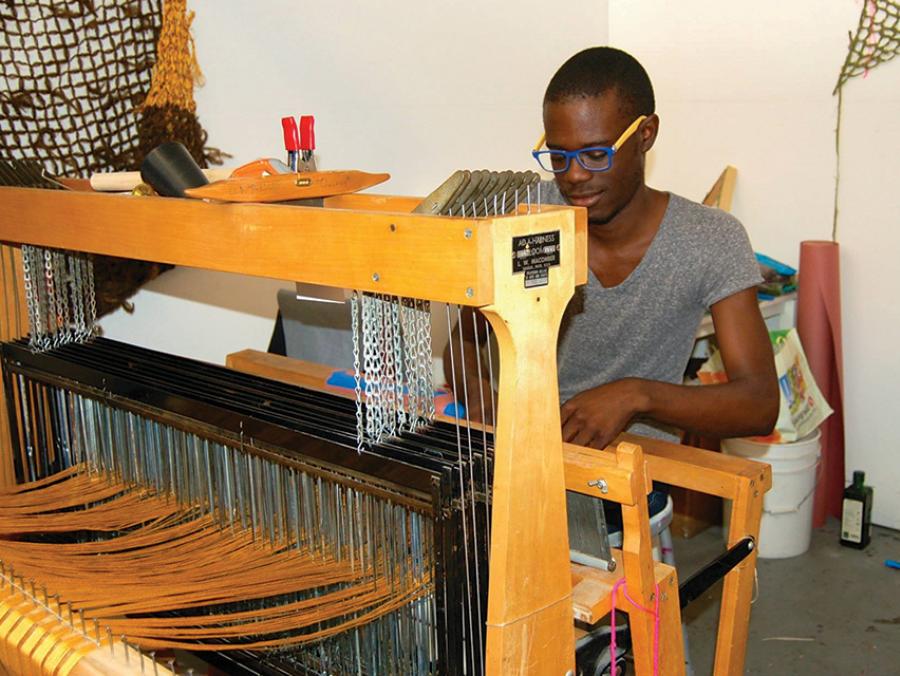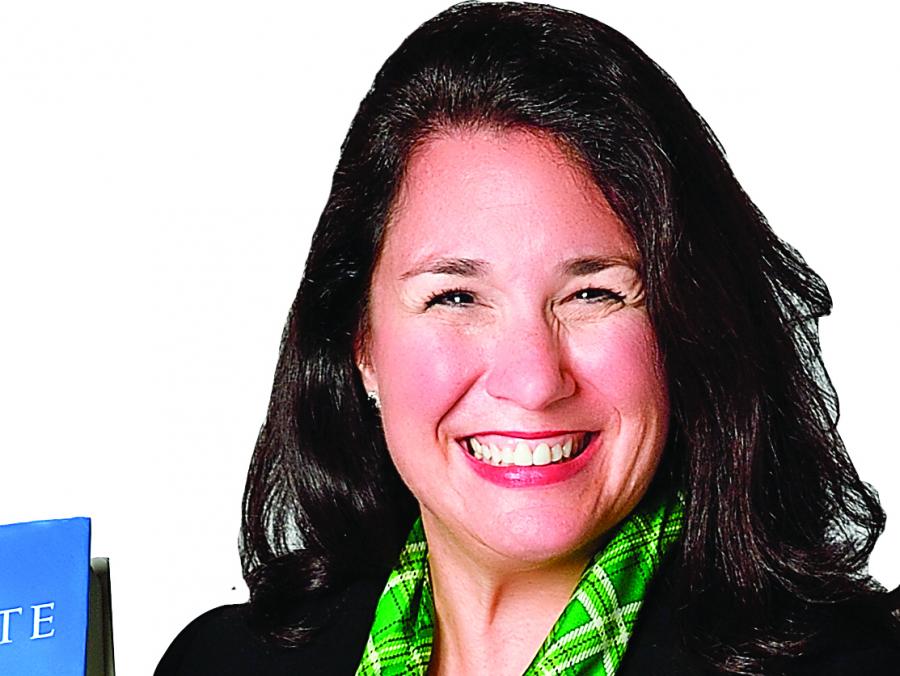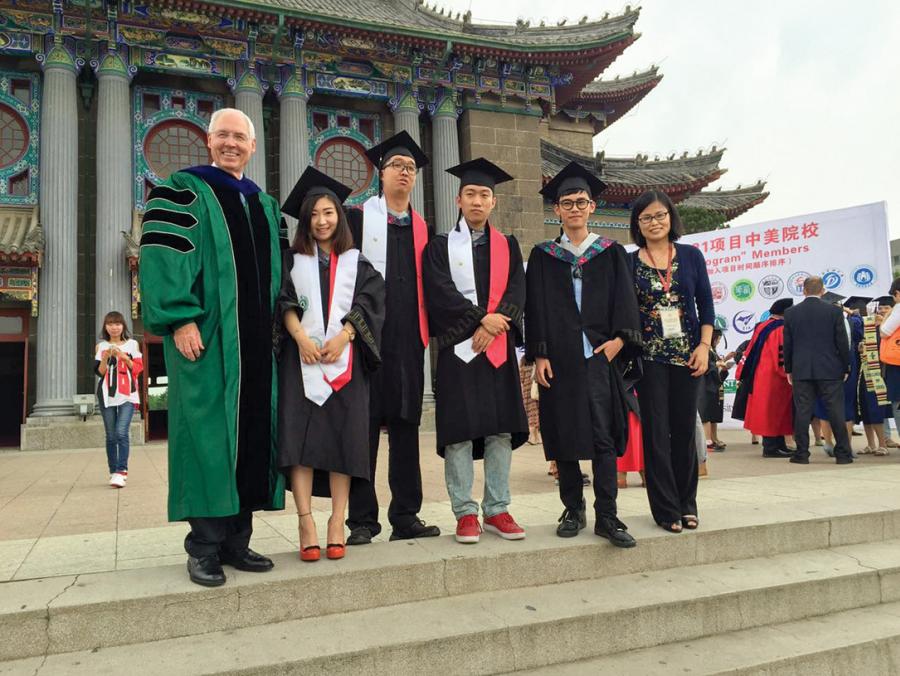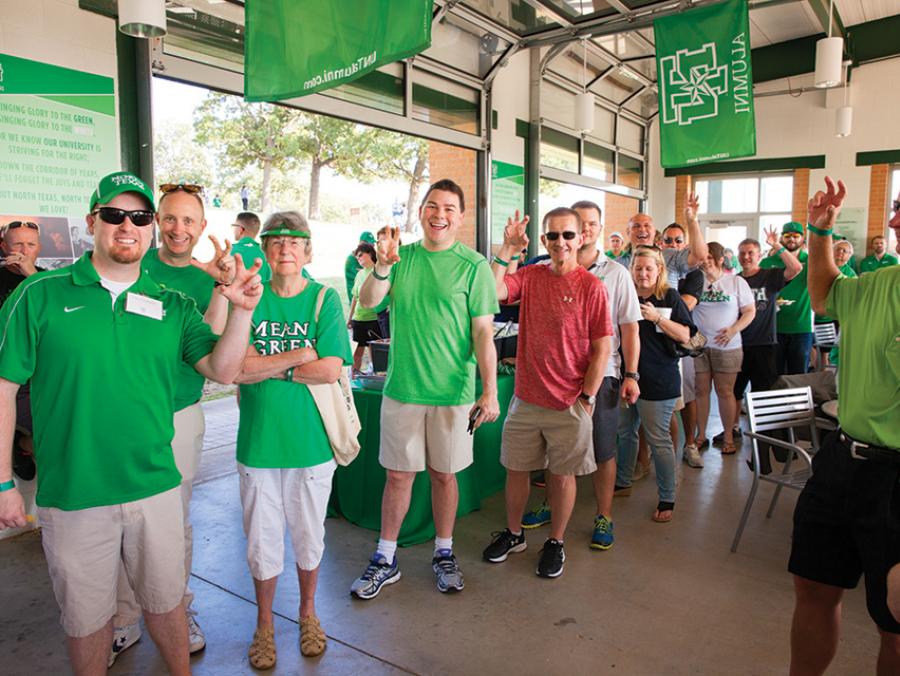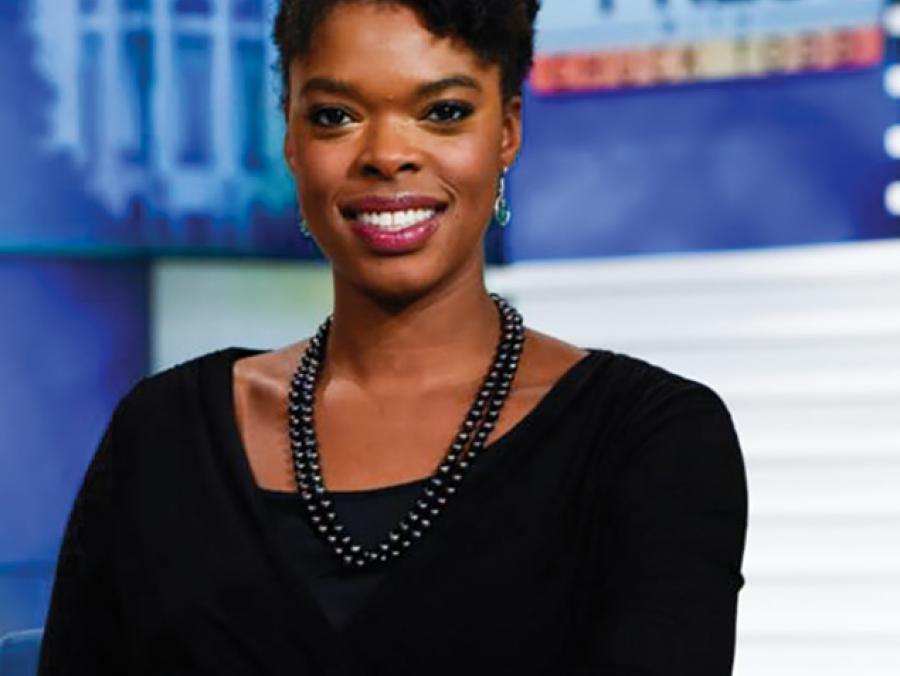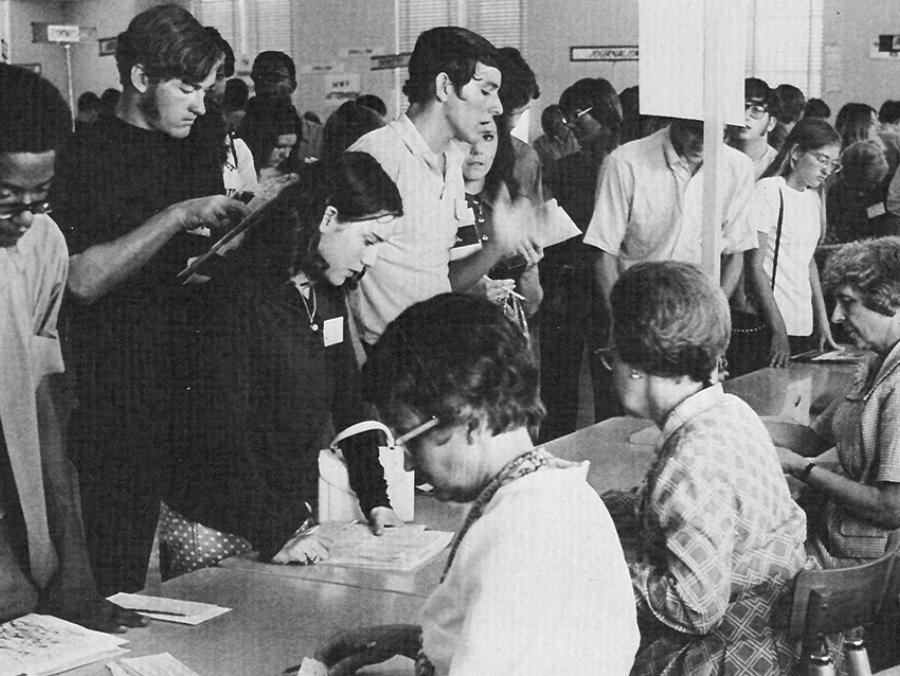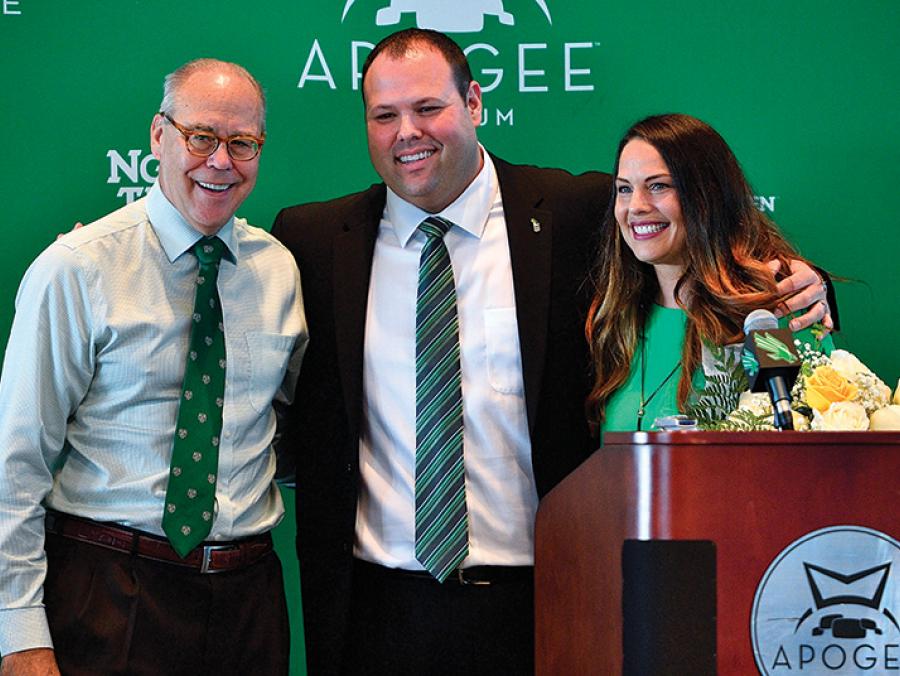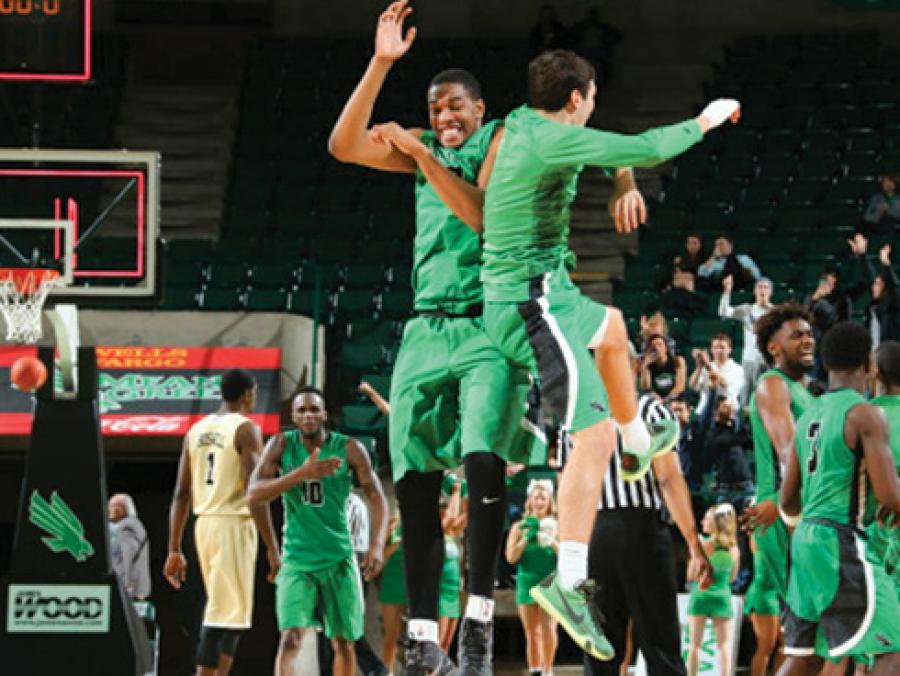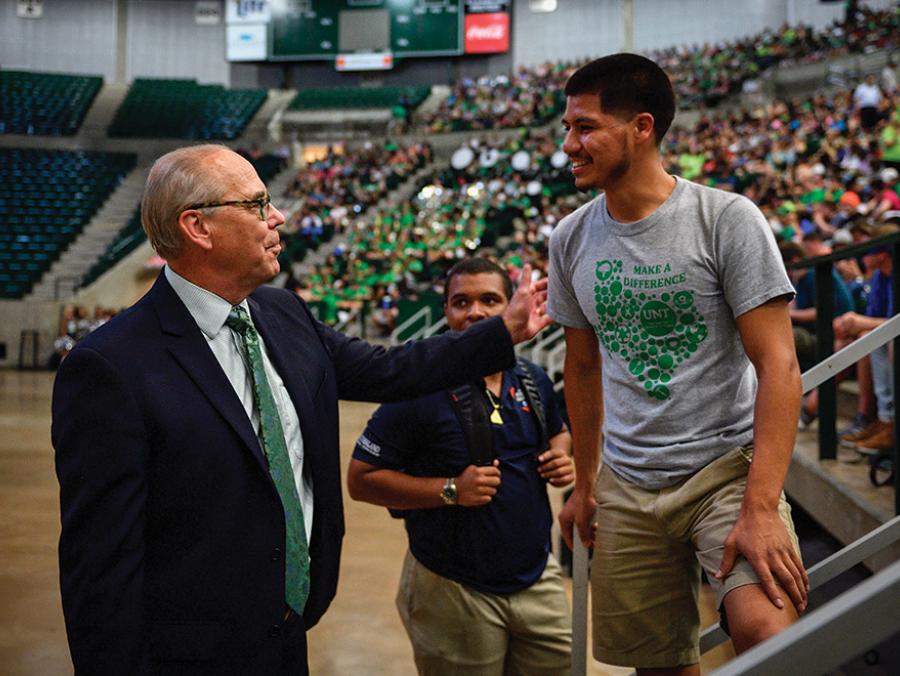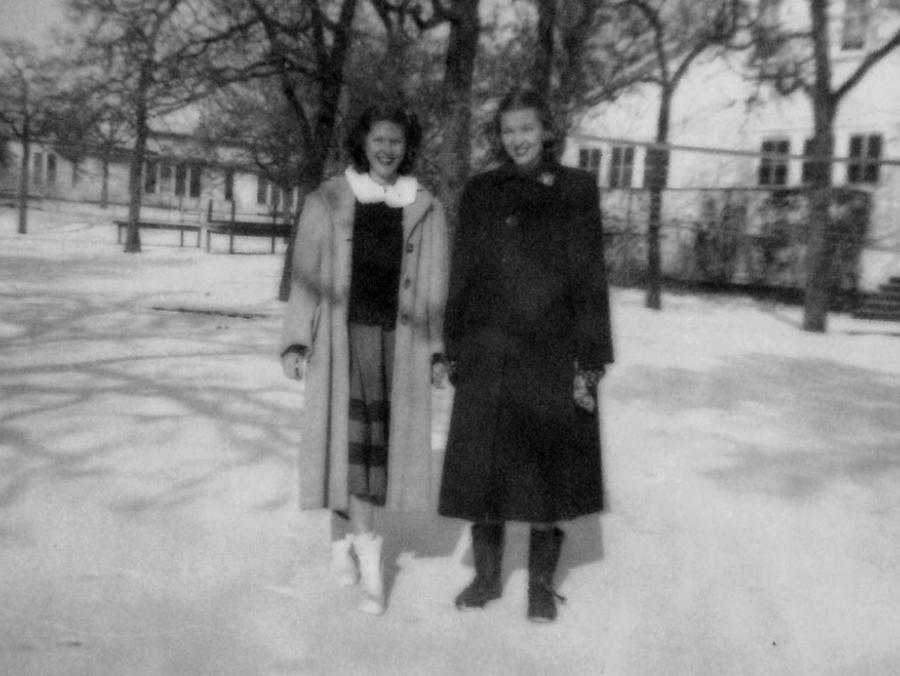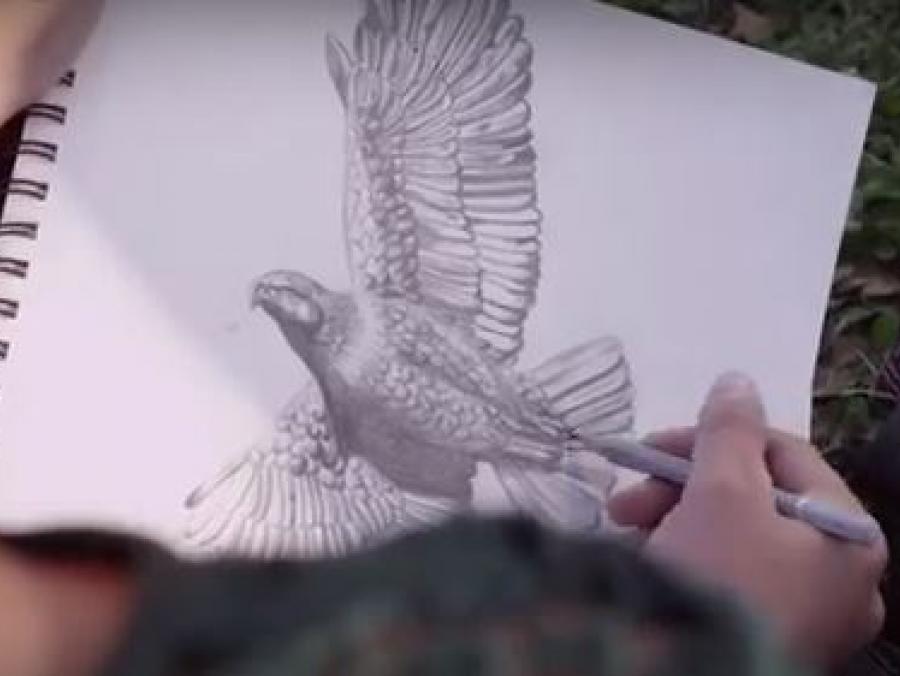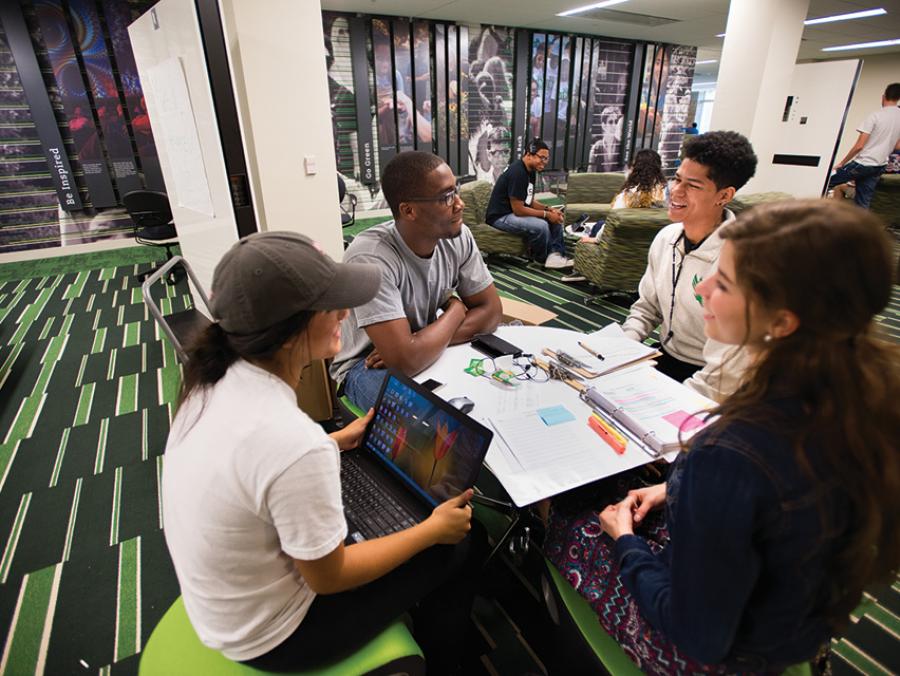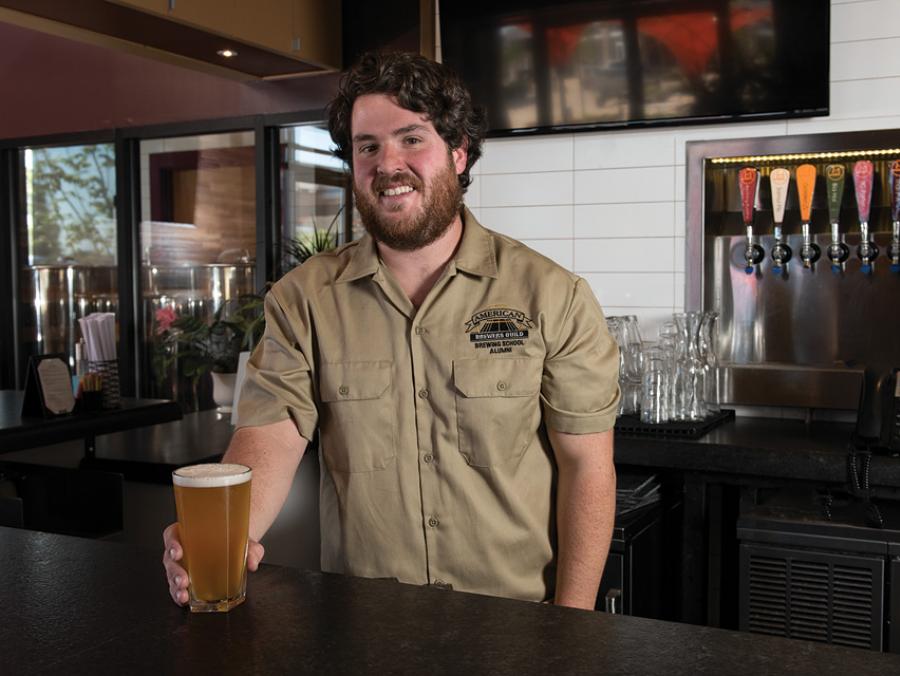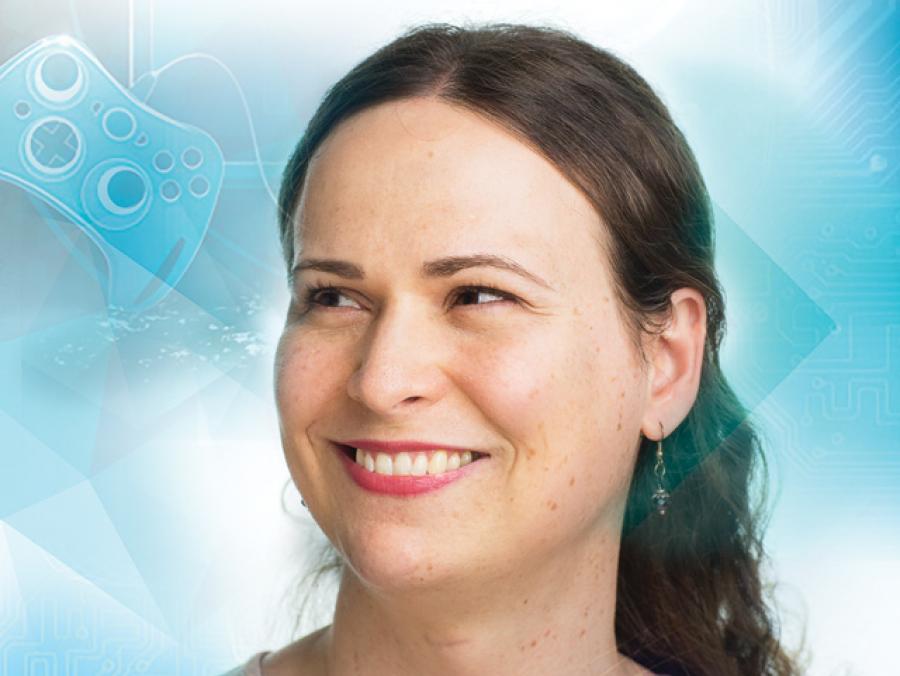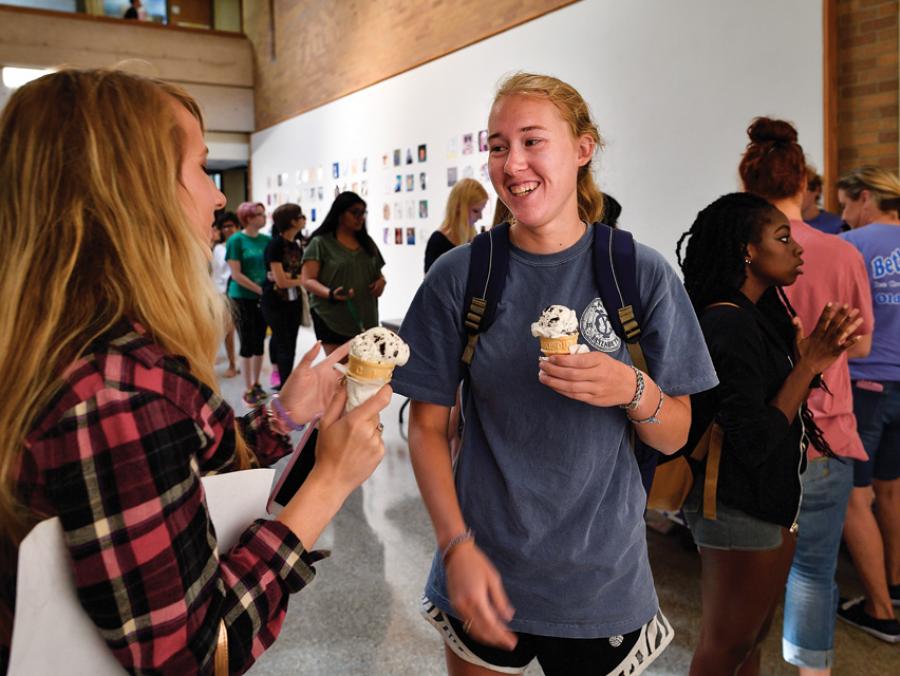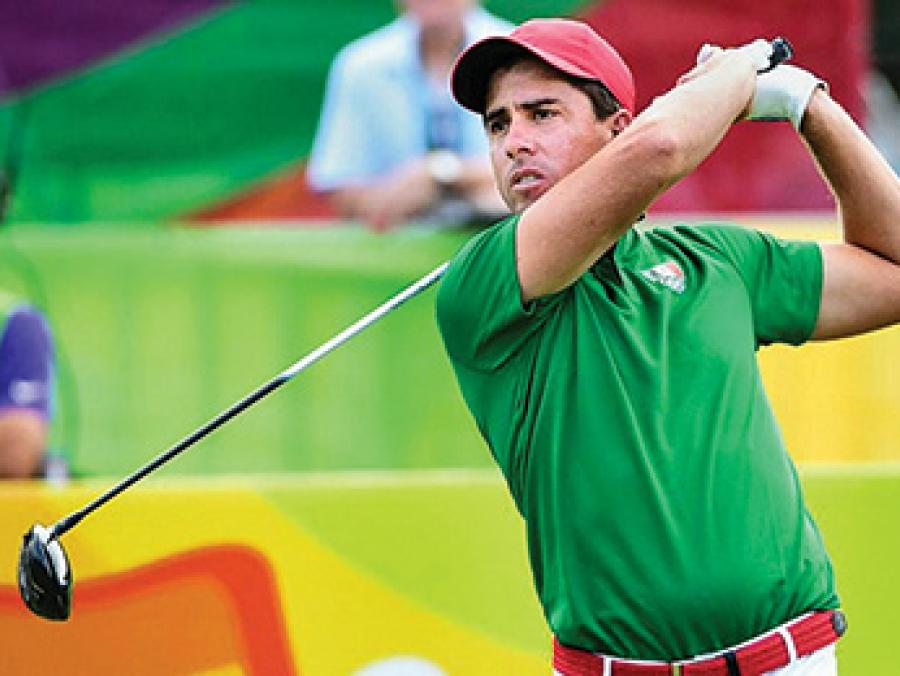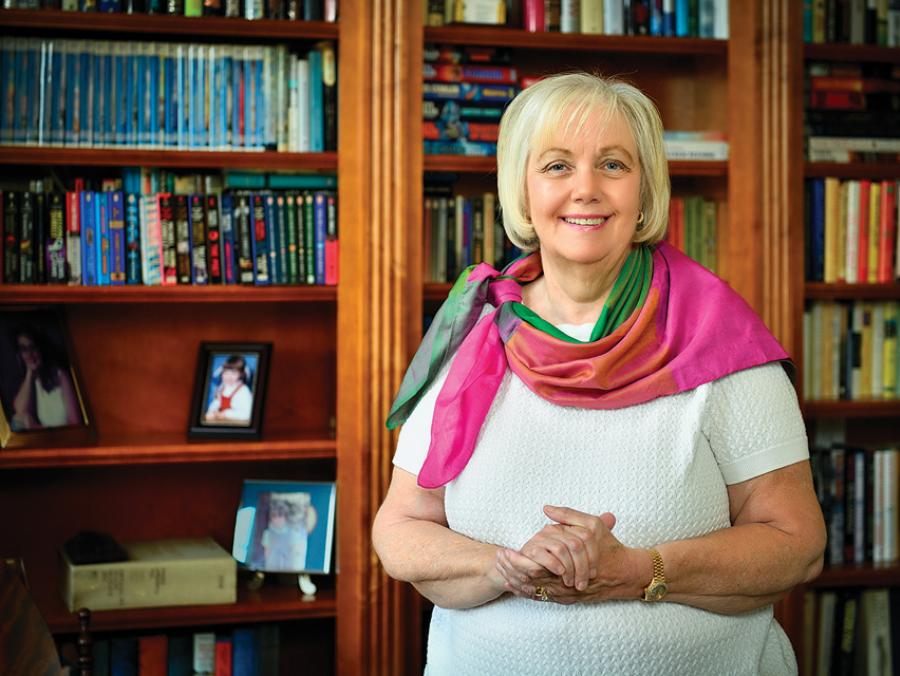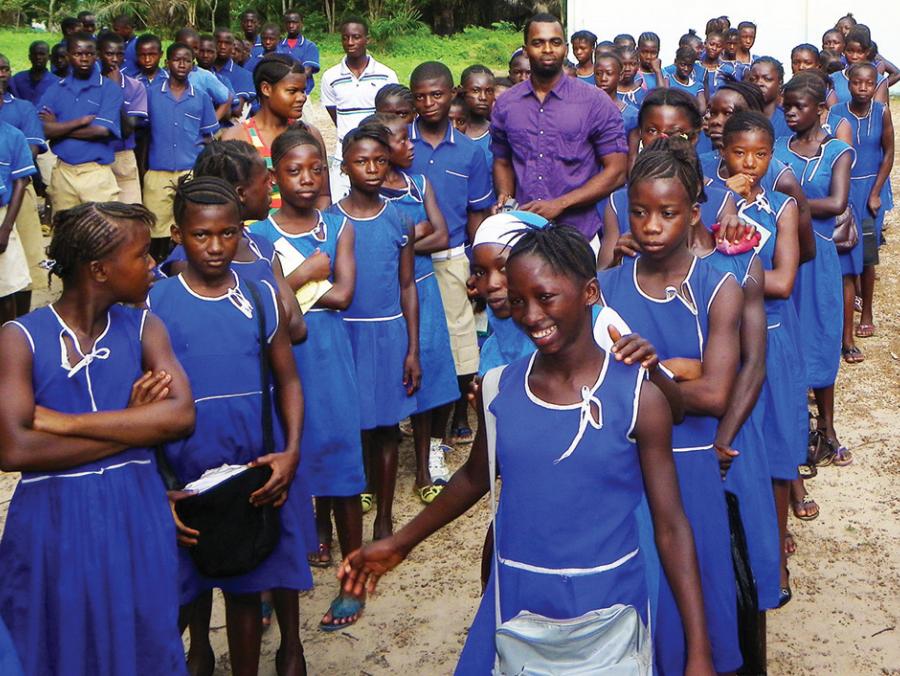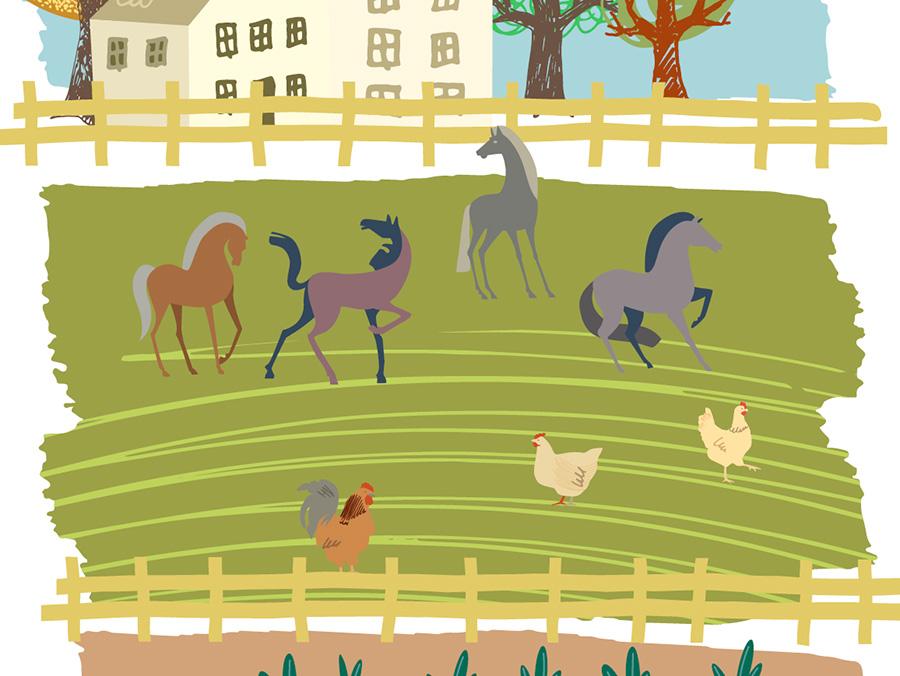
On the same day that UNT announced another record-breaking enrollment and researchers in its BioDiscovery Institute unveiled a breakthrough in the fight against breast cancer, President Neal Smatresk told the university community that being nimble and innovative is the best way for UNT to continue its rise to the top.
During the 2016 State of the University address, Smatresk challenged the community to work together as one team to create a culture of change, echoing the theme of his 2016 Planning Implementation Workshop -- United by Purpose. He started by recounting UNT's progress in the 2015-16 academic year, including the university's move to the Carnegie Classification's top ranks of research universities, the launch of key initiatives like the University of North Texas New College at Frisco and the Institutes of Research Excellence, and a new partnership with the Dallas Cowboys. The university also has focused on "under the hood" work such as improving financial aid processing time and investing more significantly in academics to improve students' experience.
This year, the university plans to break ground on its future home for the College of Visual Arts and Design, is renovating its Science Research Building and is planning a Visitor Center. Following the launch of its off-site instructional facility in Frisco in January, UNT plans to add new off-campus locations in high-growth areas such as Gainesville with classes and programs designed to meet the needs of the local market.
"We've accomplished a lot in the past two and a half years, but we still have work to do," Smatresk says. "We're a Tier One institution now and it means we have to change our aspirations and make sure we remain Tier One in everything from academics to athletics."
UNT's initiatives are centered on overarching goals to enroll and graduate more students, strengthen its reputation, grow its research, increase philanthropic support and better engage alumni. About 800 people attended the 2016 State of the University, with more viewing the live stream online. The audience included students, faculty, staff, leaders from UNT and the UNT System, community members and distinguished guests such as Denton County Judge Mary Horn, who likes UNT's plan to be more innovative, especially when it comes to academics.
"It gives students a little different perspective. It exposes them to real life fields. They get realistic expectations," Horn says.
Attendees also included alumni and friends of the university such as Jim McNatt ('66), an alumnus and businessman who co-owns local dealerships.
"Moving UNT forward takes a team effort and a positive attitude. You can't do it by yourself," McNatt says. "It's exciting to see the new leadership from deans to athletics and all of the new exciting things happening on campus. We just need to continue to bring all of our alumni back to campus and make them proud."
Jamie Wilson ('03 M.S., '11 Ph.D.), an alumnus and superintendent of Denton ISD, pointed out that everyone in the UNT community -- from students to alumni to friends of the university -- has a role to play.
"I will be there as a sounding board, as a person who wants to see the university be the best it can be and to support UNT when it wants to go against the norm -- whether that's with my presence, or financially, or just to tell the great UNT story," Wilson says.
Driving change through collaboration
The State of the University sets the stage for the university's 2016-17 priorities. This academic year, UNT will concentrate on making progress on three broad goals:
- Communication. Collaboration. Innovation.: Build a nimble and innovative culture
- Research and Reputation: Increase research, scholarship, reputation and engagement
- Student Success: Create innovative ways to better deliver or develop great new programs that meet students' needs and prepare them for strong careers
At the annual planning workshop in August, university stakeholders, including deans, chairs and staff members, explored ways to address these challenges. Smatresk organized "Change Teams" to develop and pitch projects that the President's Cabinet evaluated "Shark Tank" style. Participants then voted on the best project in each of the three categories to implement. Two of the winning projects focused on ways to increase graduate education by developing more online master's programs and creating accelerated five-year programs that lead to master's degrees. The third winning project will promote faculty collaboration with interaction spaces to promote multidisciplinary grant proposals and entrepreneurship.
Su Gao, chair of the Department of Mathematics who attended both the workshop and the State of the University, says he and other department chairs are empowered by this approach to change.
"We are thinking of how to incentivize our faculty to actually be a part of this. They're going to be excited because a lot of this has to do with what they do and addresses what is on their minds and some of the obstacles. These are challenges we are facing together," Gao says. "We are one team working toward a common purpose."
Smatresk says the university must advance through collaborative, innovative projects to maintain its Tier One status and bolster its national prominence in other ways. For instance, UNT wants to raise its profile through national rankings. UNT currently has 62 academic programs ranked in the nation's Top 100. But Smatresk and Provost Finley Graves want more programs in the Top 100 and other national rankings for the university.
"We can't define our quality solely by rankings, but they are an indication of how others view our institution, and it's one of the things that students and parents take note of," Graves says.
In a bold strategy known as 45X20, the university is challenging itself to reach key benchmarks that include enrolling 45,000 students and having $45 million in annual research expenditures by 2020.
Tom McCoy, vice president of the newly renamed Office of Research and Innovation, says that to grow its research funding, UNT must hire and cultivate additional research-active, high-impact faculty and the university must use its research space more efficiently.
"To strengthen our research culture, we're investing in our people, programs and spaces," McCoy says. "These investments foster an environment for innovative research, scholarship and creativity and will help us increase our research funding."
Driving growth and prosperity
As a top-tier research university, one of the nation and state's largest universities and one of Denton County's largest employers, UNT boosts economic activity in the North Texas region by $1.65 billion annually and is a leading producer of college graduates in Texas. UNT graduated more than 8,500 students in the 2015-16 academic year.
These highlights are detailed in the UNT Impact Report, which also was unveiled at the State of the University. UNT also is fueling economic growth through research and innovations. Through initiatives like UNT's Institutes of Research Excellence, UNT is creating a pipeline to bring faculty research, like the breast cancer breakthrough, to the market so that it benefits the greater society. The institutes also foster industry partnerships in plant science, environmental science, advanced materials and process, and logistics.
This year, UNT plans to launch two new collaborative research groups: autism spectrum disorders and big data.
Kevin Callahan, executive director of the UNT Kristin Farmer Autism Center, says the autism research group will help increase the center's reach and impact.
"Our new collaborative research group will bring all of our outstanding activity together under one institute with more focus and direction," he says. "Ultimately, we hope this will help increase the impact of our research outcomes for children and families living with autism."
Marilyn Wiley, dean of the College of Business whose faculty will play a key role in the big data research group, is excited about leveraging one of UNT's strengths for a fast-growing career field and industry need.
"We have a long history of excellence in big data and data analytics," she says. "We'll help move UNT forward by becoming known as a regional and national resource for solving data problems."
Standing out
Wren Baker, UNT's new vice president and director of athletics says one way for UNT to distinguish itself is through athletics. He's working with athletics staffers such as head football coach Seth Littrell to transform UNT's athletics program.
"Athletics is the front porch to the university. When we have a high-quality, winning program, it builds pride, excitement and awareness," Baker says. "UNT is known for academic excellence and we want to ensure that the athletic program has the same caliber of excellence and draws more people to the university."
C. Dan Smith, ('62) an alumnus and former football player inducted into UNT's Athletic Hall of Fame, agrees that having a "Tier One" athletics program is vital to UNT's success.
"If you look at other schools that have grown their athletic ability, without a doubt after they win a conference championship or a series of bowls, student enrollment increases," says Smith, who is the current UNT Foundation Board chair and a former UNT System Board of Regents Chair. "We have to continue to get athletics moving and stay there. And it takes a financial commitment to make that happen. Our alumni have to open their checkbooks and start writing some checks. But at the same time, UNT has to give back to the alumni."
Through initiatives like UNT becoming the exclusive higher education partner of the Dallas Cowboys, the university is creating buzz and awareness as well as new opportunities for students who'll benefit from engagement and internships through the partnership.
"Bold moves like these are what the university needs to do more of to stand out and get ahead. We have to ask ourselves tough questions and challenge ourselves to think bigger," Smatresk says.
"What are we doing to distinguish ourselves from other universities and increase our market share? Are we providing the right kinds of degrees to support businesses and the economy and to help our students get jobs? Most importantly, how are we adding value to our students' education and lives?" he says. "Every day, we need to focus on helping our students to grow as people, to become college graduates and to build successful careers and lives. That is our ultimate mission and that is our best measure of success."



